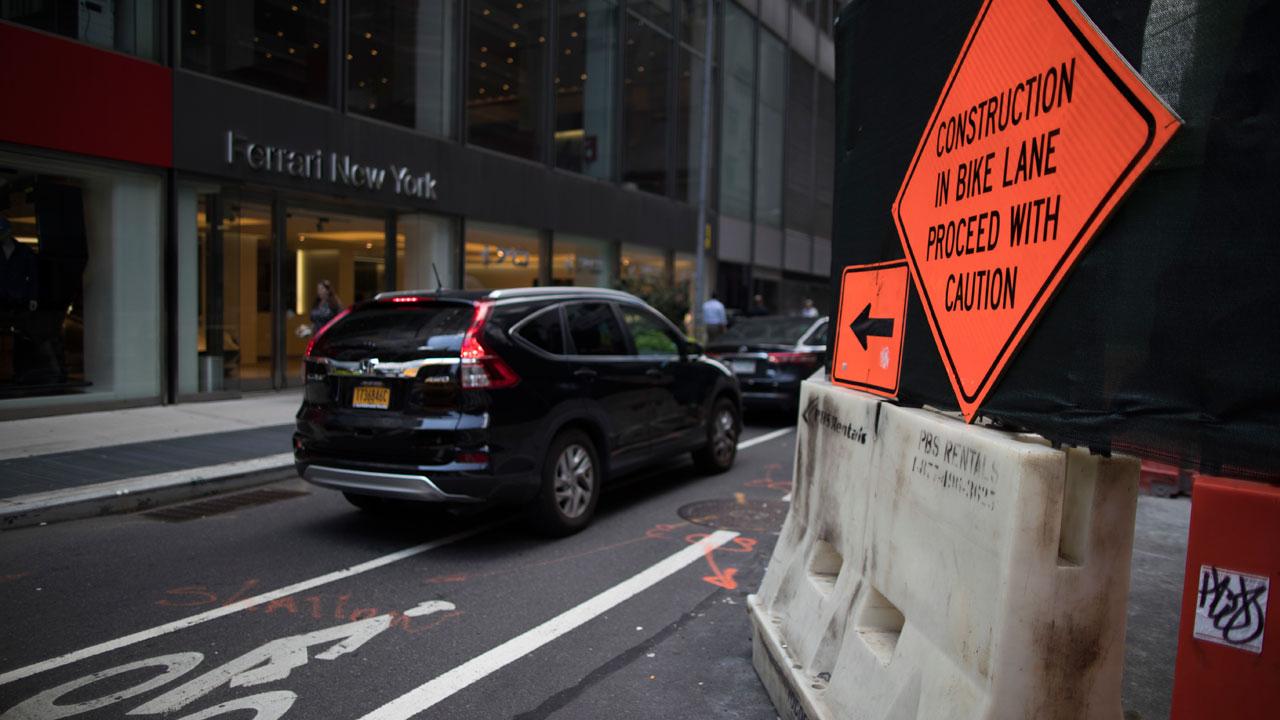Most expensive US infrastructure projects
President Trump and lawmakers are looking to begin a massive trillion-dollar overhaul of the nation’s infrastructure, but costs are top of mind as financing becomes a key source of debate.
Democratic leaders said last week they reached an agreement with Trump for a $2 trillion infrastructure initiative. They are expected to meet again in the coming weeks to discuss funding options.
A federal gas tax is one idea that has been floated to help fund the plan. National Economic Director Larry Kudlow told reporters on Friday that the White House is looking into what a potential gas tax could look like – though he added he is not a fan of higher taxes.
The president has repeatedly said fixing the nation’s “crumbling infrastructure” is one of his top priorities – a goal shared by many lawmakers on both sides of the aisle.
As plans move forward, here’s a look at some of the most costly U.S. infrastructure projects:
U.S. Interstate Highway System
President Dwight D. Eisenhower gave the green light to start construction on the U.S. Highway Interstate System in June 1956, when he signed the National Interstate and Defense Highways Act.
The Interstate Highway System now runs through all 50 states, and includes 47,000 miles of roadway. It took more than three decades to complete the original proposal.
In 2019 dollars, the project cost about $540 billion to complete. According to a report from the American Highway Users Alliance, however, it has returned more than $6 in economic productivity for each $1 it cost to build.
California High-Speed Rail
California’s plan to build a high-speed bullet train connecting parts of the state has caused controversy over its cost.
According to a report from the state’s High Speed Rail Authority, a line in California’s Central Valley, which is under construction, will cost $12.4 billion – up from initial estimates of $10.6 billion. The entire Central Valley segment is expected to cost more than $20 billion.
The initial plan was to build a line connecting San Francisco to Los Angeles, which would cost $79 billion, the report stated. However, Gov. Gavin Newsom pared down the project earlier this year, concentrating on a line connecting Bakersfield to Merced.
President Trump has criticized the state over the train, on which he said “many billions of dollars” had been wasted.
Meanwhile, the Federal Rail Authority said it would withhold more than $900 million in promised federal funds as it says the project continues to fail to meet critical goals.
The Big Dig
The Big Dig refers to a project that was undertaken in Boston, aimed at improving roadways. It consisted of the construction of a subterranean highway, bridges, as well as the extension of Interstate 90.
The project started in 1991 and was completed in Dec. 2007. It was estimated to have cost about $14.8 billion upon completion. However, the Massachusetts Department of Transportation announced in 2012 that the cost was closer to $24 billion, including interest on debt.
Long Island Rail Road Project
New York City is in the process of creating a new train station under Grand Central Terminal, with a connection to the Long Island Rail Road – a plan called “East Side Access.”
The idea is to offer easier commutes between Long Island and the east side of Manhattan. It is one of the largest transportation projects currently underway in the country, according to the MTA.
The project will cost more than $11 billion, which is $1 billion more than a previous 2014 estimate.
Construction began more than 10 years ago, but it is unlikely to be fully completed until the end of 2022.
CLICK HERE TO GET THE FOX BUSINESS APP
Second Avenue New York City Subway
Another New York City transportation project is among the most expensive. The plan to build a subway along Manhattan’s Second Avenue also included modernizing certain stations, in addition to the creation of new ones.
That project was completed in 2017, and is estimated to have cost about $4.5 billion.
Meanwhile, a second phase is still in the works, which is expected to cost another $4.5 billion. The city hopes Phase Two will be completed in 10 years.




















